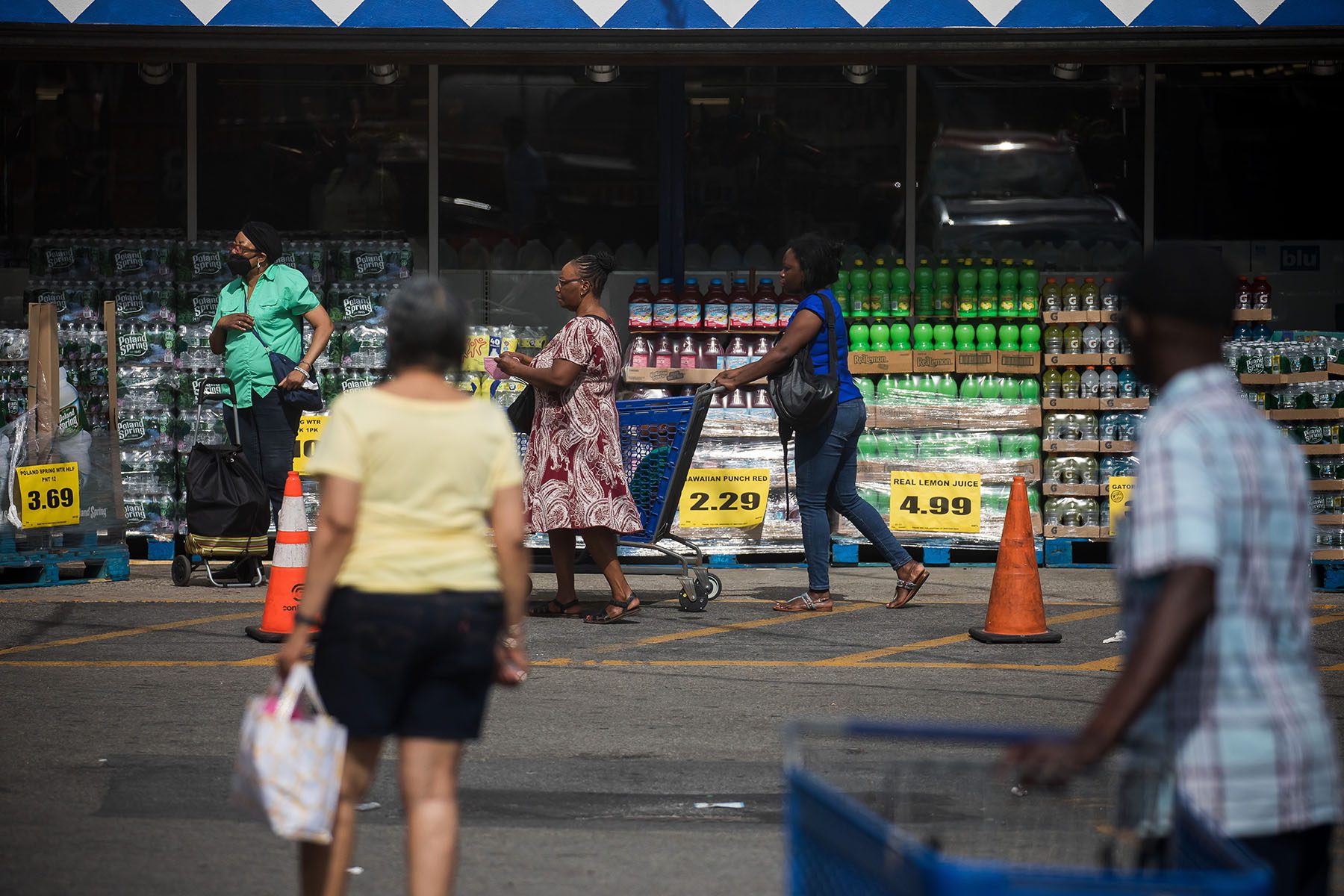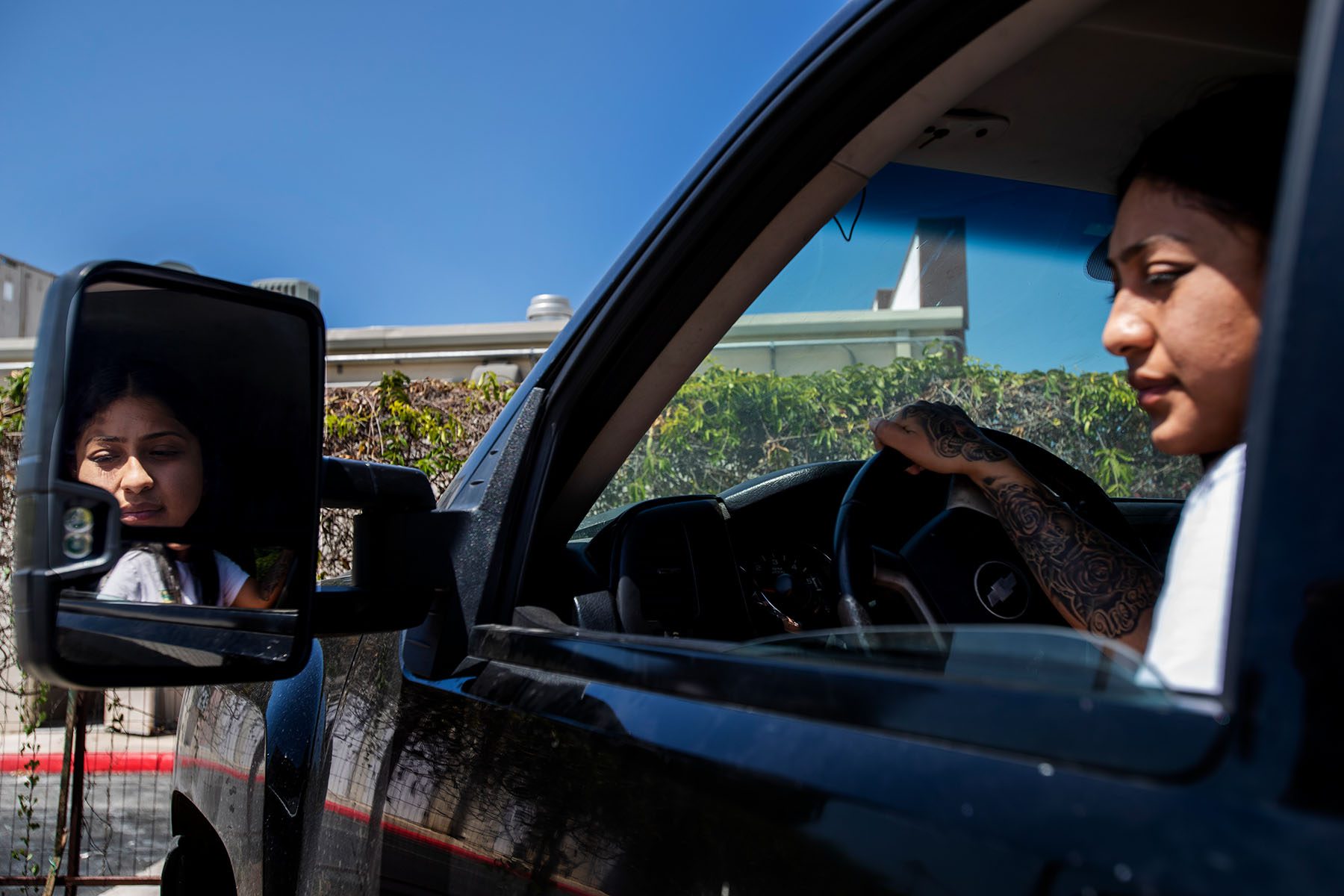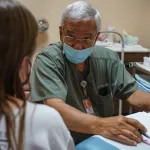Soaring inflation is making travel more expensive just as millions of people have lost access to abortion in their own states, stretching the already limited resources of the private funds that help people pay for the procedures.
The Supreme Court on Friday overturned Roe v. Wade, the 1973 decision that protected the federal right to an abortion. Now, decisions about abortion access are completely left to the states. Since Friday morning, abortion has become completely unavailable in nine states thanks to so-called trigger laws and abortion bans that predated 1973 now potentially taking effect. (Three other total bans are temporarily blocked in courts; another four states have begun enforcing six-week abortion bans.) Abortion providers in other states are expecting a massive surge in new patients, with some projecting to see thousands more people per month. Patients who live hundreds of miles from the clinics are already calling to book appointments.
Traveling out of state for an abortion was already unaffordable for many. But the end of federal abortion rights has come as inflation rates are pushing up prices for gas, hotels, plane tickets, medical supplies and food.
Per the Bureau of Labor Statistics (BLS), prices were up 8.6 percent in May compared with the same time last year — the largest increase since 1981. Gas prices were the single biggest contributor, but food prices and airline fares have also been significantly affected.
“It’s just wild,” said Megan Jeyifo, who runs the Chicago Abortion Fund, which helps people pay for abortions and other associated travel. “The actual costs, the hard costs are just going up and up.”
Gas prices right now average about $5 per gallon. Average airline tickets are the most expensive they’ve ever been since BLS started tracking airline prices in 1989: $336 in May, up 38 percent compared with last May. The increase is largely due to inflation, but staffing shortages also play a part. The average cost of lodging away from home, including hotels and motels, is also at a historic high. Hotel prices in May were up 20 percent compared with the same time last year, per federal data. And none of that includes the price of the appointment, which is usually at least $500 — and those prices are ticking up, too.
In Chicago, it’s visible. Hotel rooms seem to cost about 25 percent more than they used to, Jeyifo said
“Everything is more expensive,” she said.
Illinois, where Jeyifo lives and works, is expected to be one of the most important access points in the country, a destination for people traveling from Wisconsin, Kentucky, Tennessee, Ohio, Nebraska, Missouri, Oklahoma and Texas — a drivable distance, even if those states aren’t in the same region. But the ever-increasing prices make everything harder. More people will rely on financial aid provided by organizations like hers, but those same services will cost more. She worries about whether her fund will be able to support everyone in need.
Even before Roe was overturned, Terry Salas Merritt, a consultant at Jacksonville-based clinic A Woman’s Choice, said she was worried that climbing prices for gas, food and child care were forcing patients to delay their abortions as they scrambled to scrape together money for an appointment.
But the price hikes are coming just as close to 30 million more Americans will be given little choice but to leave their home states if they want an abortion.
-
The Latest:
“It definitely means the dollars we’ve raised don’t go as far,” said Jaki Lawrence, a spokesperson for the Colorado-based Cobalt Abortion Fund. Because it costs more to help just one person get an abortion, the funds are limited in terms of how many people they can help as need is about to increase.
Even before Friday, Cobalt had been supporting an record level of people traveling to Colorado for abortion care. Since September 1, 2021, when a six-week abortion ban took effect in their state, the state had served as a destination for Texans seeking abortions. On May 2, a similar ban took effect in Oklahoma, the state that had until then absorbed almost half of all Texans leaving the state for abortions. Since then, Cobalt has been supporting an increase in Texas-based travelers as well as Oklahomans now looking for somewhere they can get an abortion.
The price hikes are visible and often shocking. Amanda Carlson, Cobalt’s executive director, recalled buying plane tickets for one woman and her mother. They flew from Oklahoma to Colorado for a one-hour appointment. Round-trip, the airfare cost $1,200.

“A lot of people we serve are low-income. They can’t afford it. Even if it’s $400, that’s a lot of money to come up with for just a flight, plus the procedure cost, plus food,” Carlson said.
Inflation in the health care sector has been slower than in other areas of the economy. But it’s also not immune. Climbing costs for medical supplies are pushing some abortion providers to slowly raise their prices as well. In Chicago, multiple providers announced price increases just this past weekend, Jayifo said. Dr. Kelly Peters, medical director at the Boulder Valley Women’s Health Center, said her clinic too is likely to soon increase its prices for some abortion services. They can’t afford not to.
Abortion funds have reported a major spike in donations since Friday’s Supreme Court decision. But it’s not clear if that will be enough to cover both the increased costs of traveling for abortion care and the heightened number of people who will be making the journey. Multiple clinicians and fund staffers told The 19th they do not believe they will have sufficient resources to pay for everyone who needs financial support to pay for an abortion or for abortion-related travel, lodging and food.
That’s what worries Dr. Kristina Tocce, the medical director for Planned Parenthood Rocky Mountains. Tocce, based in Denver, has already seen the scores of patients traveling to her clinics from Texas and Oklahoma. Some drove 13 hours to make the journey. Others have been on a bus for 24 hours. At this point, that level of travel is almost the norm.
Whenever Tocce sees gas station signs on the roads, she knows what it means for her patients. Every day she is in the clinic, she hears patients worried about how they will afford the trek home. Inflation, she fears, has already made an already burdensome journey even more arduous.
“I routinely hear patients talk about how they are going to finance their gas back home, or the hotel for the evening, or how they’ll get food for the family who traveled with them, or if they’re alone,” she said. “Inflation is going to drastically impact that. It’s heartbreaking to hear the patients stress about this now and know this will only get worse.”
Chabeli Carrazana contributed reporting to this article.








